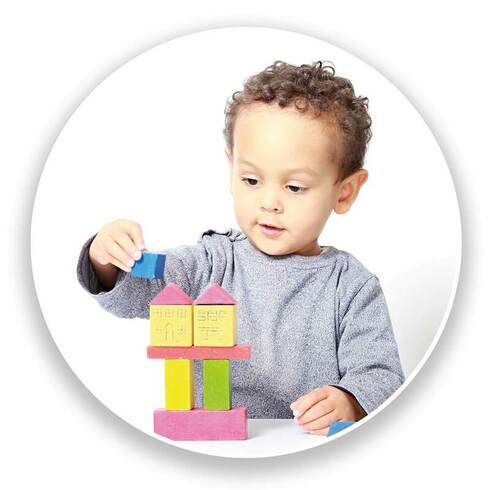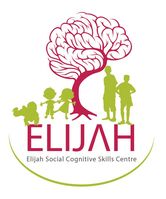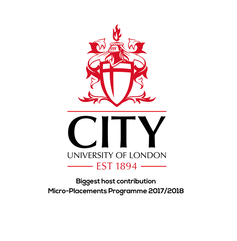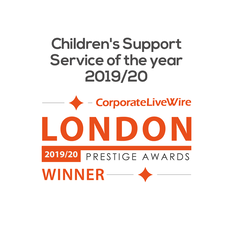
1. Early Intervention
Early intervention (for ages 18 months - 5 years) is a set of programmes designed to help babies
& children with developmental delays. It may be required under the following circumstances:
Early intervention is the most effective way to help young children before their social, emotional and physical challenges start to impact on their quality of life. Addressing these issues early on in their development - from 18months - is essential to ensure that children reach their maximum potential.
At the Elijah Centre in North West London and at our location in Great James Street in Central London, groups of children aged from 18 months to 5 years are guided through a programme of games designed to optimise their
pre- and post-linguistic and neuro-motor skills.
Children receive the necessary input to relate better to the world around them, and skills gained are easily transferrable to a typical mainstream classroom scenario. The end goal is to mould each child into a confident and capable individual, capable of tackling every day challenges like everyone else.
Programme Objectives:
" Activities are targeted at raising children’s awareness’s of other children in the group and what they are doing. The PROSCIG methodology builds, independence, functional spontaneous communication, cognitive skills development, social competence, play skill development, generalization of skills, and proactive approaches to problem behaviour."
- Laurel Friedman, Leading Educational Psychologist -
Early intervention (for ages 18 months - 5 years) is a set of programmes designed to help babies
& children with developmental delays. It may be required under the following circumstances:
- Poor executive function
- Poor eye contact
- Poor concentration & difficulty focusing
- Poor social skills
- Difficulties with comprehension
- Low energy levels
- Delay in gross or fine motor skills
- Challenges with visual perception
- Difficulty with sensory processing
Early intervention is the most effective way to help young children before their social, emotional and physical challenges start to impact on their quality of life. Addressing these issues early on in their development - from 18months - is essential to ensure that children reach their maximum potential.
At the Elijah Centre in North West London and at our location in Great James Street in Central London, groups of children aged from 18 months to 5 years are guided through a programme of games designed to optimise their
pre- and post-linguistic and neuro-motor skills.
Children receive the necessary input to relate better to the world around them, and skills gained are easily transferrable to a typical mainstream classroom scenario. The end goal is to mould each child into a confident and capable individual, capable of tackling every day challenges like everyone else.
Programme Objectives:
- Encourage self-awareness, confidence and independence
- Promote independent thinking and behaviour
- Facilitate social and communication skills
- Develop age appropriate interaction with adults and peers
- Build listening and comprehension skills
- Prepare for mainstream schooling and everyday routines
" Activities are targeted at raising children’s awareness’s of other children in the group and what they are doing. The PROSCIG methodology builds, independence, functional spontaneous communication, cognitive skills development, social competence, play skill development, generalization of skills, and proactive approaches to problem behaviour."
- Laurel Friedman, Leading Educational Psychologist -
2. Executive Function
Executive Function (EF) Skills are the range of self-management skills that enable individuals to attain goals. It involves three key areas: Working Memory, Cognitive Flexibility and Self Control.
Working Memory controls an individual’s ability to retain and manipulate distinct pieces of information over short periods of time; keeping in mind the task at hand.
Cognitive Flexibility allows us to sustain or shift attention in response to different demands or to apply different rules in different settings; realising when which approach is appropriate to which situation.
Self-Control enables us to set priorities and resist impulsive actions or responses.
Typically, executive functions skills develop in childhood though to adulthood, peaking around the mid-20s. Poor executive functions skills make it difficult for individuals to manage their time effectively, follow rules and directions, plan and organise a sequence of events or execute tasks in an effective manner, an inability to inhibit impulses that do not help to achieve goals (such as avoiding distractions).
What do we do at the Elijah Centre?
At the Elijah Centre, we implement the principles of PROSCIG© to support children who face challenges in executive functions and self-regulation skills.
The PROSCIG© methodology is broken down into fifteen stages and adapted to each child depending on his or her specific developmental needs, skills and talents:
1.Attention and focus
The first step in PROSCIG© is to increase your child’s attention. This is a vital step as it allows better engagement with your child, making it possible to teach other skills.
2.Executive function
Executive Function (EF) Skills are the range of self-management skills that enables individuals to attain goals. It can be considered to involve three key areas: Working Memory, Cognitive Flexibility and Impulse Control.
•Working Memory controls an individual’s ability to retain and manipulate distinct pieces of information over short periods of time; keeping in mind the task at hand.
•Cognitive Flexibility allows us to sustain or shift attention in response to different demands or to apply different rules in different settings; realising when which approach is appropriate to which situation.
•Self-Control enables us to set priorities and resist impulsive actions or responses.
3.Social awareness
This relates to be aware of significance of interacting with peers and others on a day-to-day basis several times each day. This is a skill that is learnt from a young age, so that little children are able to communicate their needs to both adults and their peers.
4.Social flexibility
For children who face challenges in social flexibility, we work with them on first learning the importance of being flexible and the social implication when we are flexible (our friends will like to spend more time with us for example). Also, we teach children to be able to adapt their thinking and switch between tasks.
5.Self-regulation
This is the ability to act in one’s long-term best interests and has been shown by research to be necessary for emotional well-being. It also enables individuals to be able to focus on, and complete daily tasks. A skill that is vital for all aspects of life.
6.Social problem solving
This is important for later receptive and expressive language development. Problem solving begins in infancy when a child learns that their behaviours (e.g. crying) can affect a predictable change in the environment (e.g. getting fed). Being successful at problem solving helps the child remain motivated to learn and begins development of cause and effect.
7.Self-Confidence & Self esteem
The Elijah centre help children improving self-confidence by building self-worth for each child.
8.Academic skills: literacy and numeracy
This is a skill especially important in transition period from primary to secondary school. Children get additional academic support from Elijah centre.
9.Working in a group
This is a skill that enables children to learn how to work in a team and develop skills in sharing and taking turns. Children develop the ability to be tolerant of others around them and to be able to share space with others. Learning to work in a group enables children to perform in a “real” and meaningful process with the aim of achieving the same goals. They would then be able to observe, imitate, follow instructions and build interactions which gives them the ability to deal with their environments in more effective ways.
10.Social Perception
Social perception is how we form impressions and make inferences about people’s feelings and emotions by reading their body language, facial expressions, physical appearance and other verbal and nonverbal communications.
11.Auditory Processing
-Develop and enhance listening skills
-Phonological awareness
-Attention
-Comprehension
-Linguistic processing
12.Social understanding
This is a skill come along with social awareness.
13.Emotional Development
Apart from academic success, emotional intelligence is also a vital part of children’s
development. This is a practical skill in real world.
14.Behaviour Awareness
-Emotional awareness
-Emotional regulation
-Social and self-awareness
15.Pragmatic Skills
Every skill learnt as part of the PROSCIG© is important for your child’s development; each skill complements the other, allowing your child to develop in a manner that builds on his or her strengths and tackles their weaknesses. Bringing all these skills together and put them into practice is necessary to achieve a good quality of life.
Executive Function (EF) Skills are the range of self-management skills that enable individuals to attain goals. It involves three key areas: Working Memory, Cognitive Flexibility and Self Control.
Working Memory controls an individual’s ability to retain and manipulate distinct pieces of information over short periods of time; keeping in mind the task at hand.
Cognitive Flexibility allows us to sustain or shift attention in response to different demands or to apply different rules in different settings; realising when which approach is appropriate to which situation.
Self-Control enables us to set priorities and resist impulsive actions or responses.
Typically, executive functions skills develop in childhood though to adulthood, peaking around the mid-20s. Poor executive functions skills make it difficult for individuals to manage their time effectively, follow rules and directions, plan and organise a sequence of events or execute tasks in an effective manner, an inability to inhibit impulses that do not help to achieve goals (such as avoiding distractions).
What do we do at the Elijah Centre?
At the Elijah Centre, we implement the principles of PROSCIG© to support children who face challenges in executive functions and self-regulation skills.
The PROSCIG© methodology is broken down into fifteen stages and adapted to each child depending on his or her specific developmental needs, skills and talents:
1.Attention and focus
The first step in PROSCIG© is to increase your child’s attention. This is a vital step as it allows better engagement with your child, making it possible to teach other skills.
2.Executive function
Executive Function (EF) Skills are the range of self-management skills that enables individuals to attain goals. It can be considered to involve three key areas: Working Memory, Cognitive Flexibility and Impulse Control.
•Working Memory controls an individual’s ability to retain and manipulate distinct pieces of information over short periods of time; keeping in mind the task at hand.
•Cognitive Flexibility allows us to sustain or shift attention in response to different demands or to apply different rules in different settings; realising when which approach is appropriate to which situation.
•Self-Control enables us to set priorities and resist impulsive actions or responses.
3.Social awareness
This relates to be aware of significance of interacting with peers and others on a day-to-day basis several times each day. This is a skill that is learnt from a young age, so that little children are able to communicate their needs to both adults and their peers.
4.Social flexibility
For children who face challenges in social flexibility, we work with them on first learning the importance of being flexible and the social implication when we are flexible (our friends will like to spend more time with us for example). Also, we teach children to be able to adapt their thinking and switch between tasks.
5.Self-regulation
This is the ability to act in one’s long-term best interests and has been shown by research to be necessary for emotional well-being. It also enables individuals to be able to focus on, and complete daily tasks. A skill that is vital for all aspects of life.
6.Social problem solving
This is important for later receptive and expressive language development. Problem solving begins in infancy when a child learns that their behaviours (e.g. crying) can affect a predictable change in the environment (e.g. getting fed). Being successful at problem solving helps the child remain motivated to learn and begins development of cause and effect.
7.Self-Confidence & Self esteem
The Elijah centre help children improving self-confidence by building self-worth for each child.
8.Academic skills: literacy and numeracy
This is a skill especially important in transition period from primary to secondary school. Children get additional academic support from Elijah centre.
9.Working in a group
This is a skill that enables children to learn how to work in a team and develop skills in sharing and taking turns. Children develop the ability to be tolerant of others around them and to be able to share space with others. Learning to work in a group enables children to perform in a “real” and meaningful process with the aim of achieving the same goals. They would then be able to observe, imitate, follow instructions and build interactions which gives them the ability to deal with their environments in more effective ways.
10.Social Perception
Social perception is how we form impressions and make inferences about people’s feelings and emotions by reading their body language, facial expressions, physical appearance and other verbal and nonverbal communications.
11.Auditory Processing
-Develop and enhance listening skills
-Phonological awareness
-Attention
-Comprehension
-Linguistic processing
12.Social understanding
This is a skill come along with social awareness.
13.Emotional Development
Apart from academic success, emotional intelligence is also a vital part of children’s
development. This is a practical skill in real world.
14.Behaviour Awareness
-Emotional awareness
-Emotional regulation
-Social and self-awareness
15.Pragmatic Skills
Every skill learnt as part of the PROSCIG© is important for your child’s development; each skill complements the other, allowing your child to develop in a manner that builds on his or her strengths and tackles their weaknesses. Bringing all these skills together and put them into practice is necessary to achieve a good quality of life.
Group Sessions at the Elijah Centre take place every:
Tuesday afternoon & every Wednesday/Thursday/Friday in the morning & afternoon.
Groups are mixed-ability for children and organised according to the following age ranges:
Groups can also be arranged by gender, should this be required.
Tuesday afternoon & every Wednesday/Thursday/Friday in the morning & afternoon.
Groups are mixed-ability for children and organised according to the following age ranges:
- 5 to 7 years old
- 7 to 11
- 12 to 17
Groups can also be arranged by gender, should this be required.





